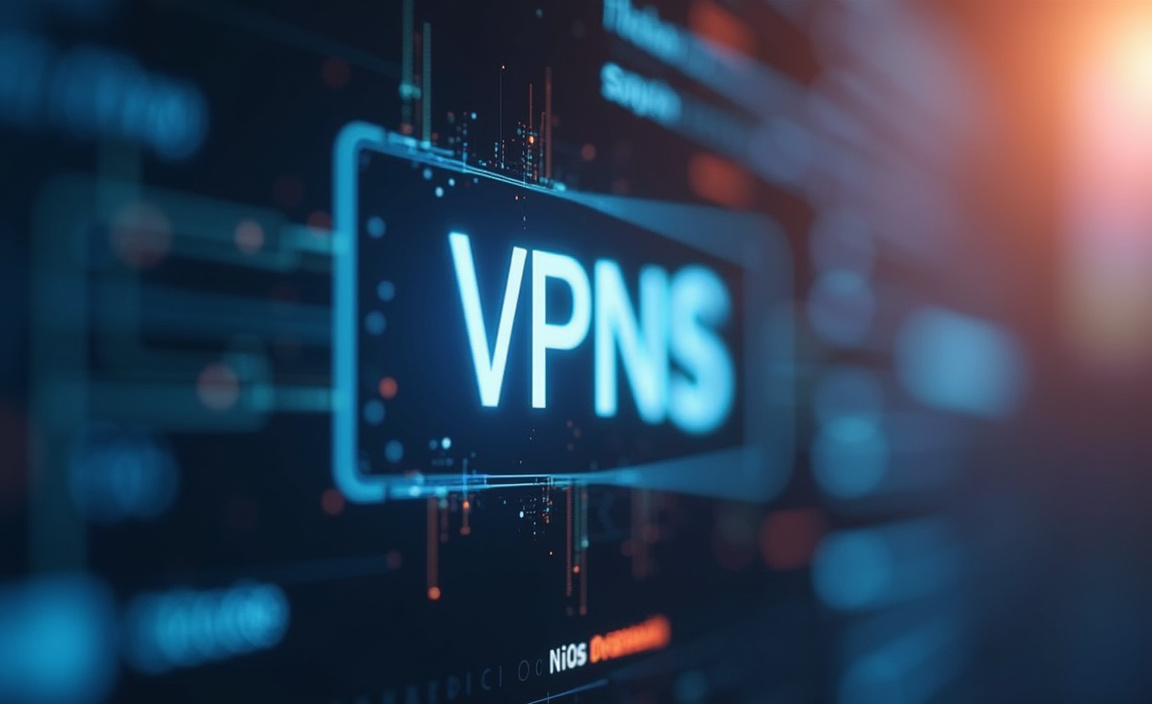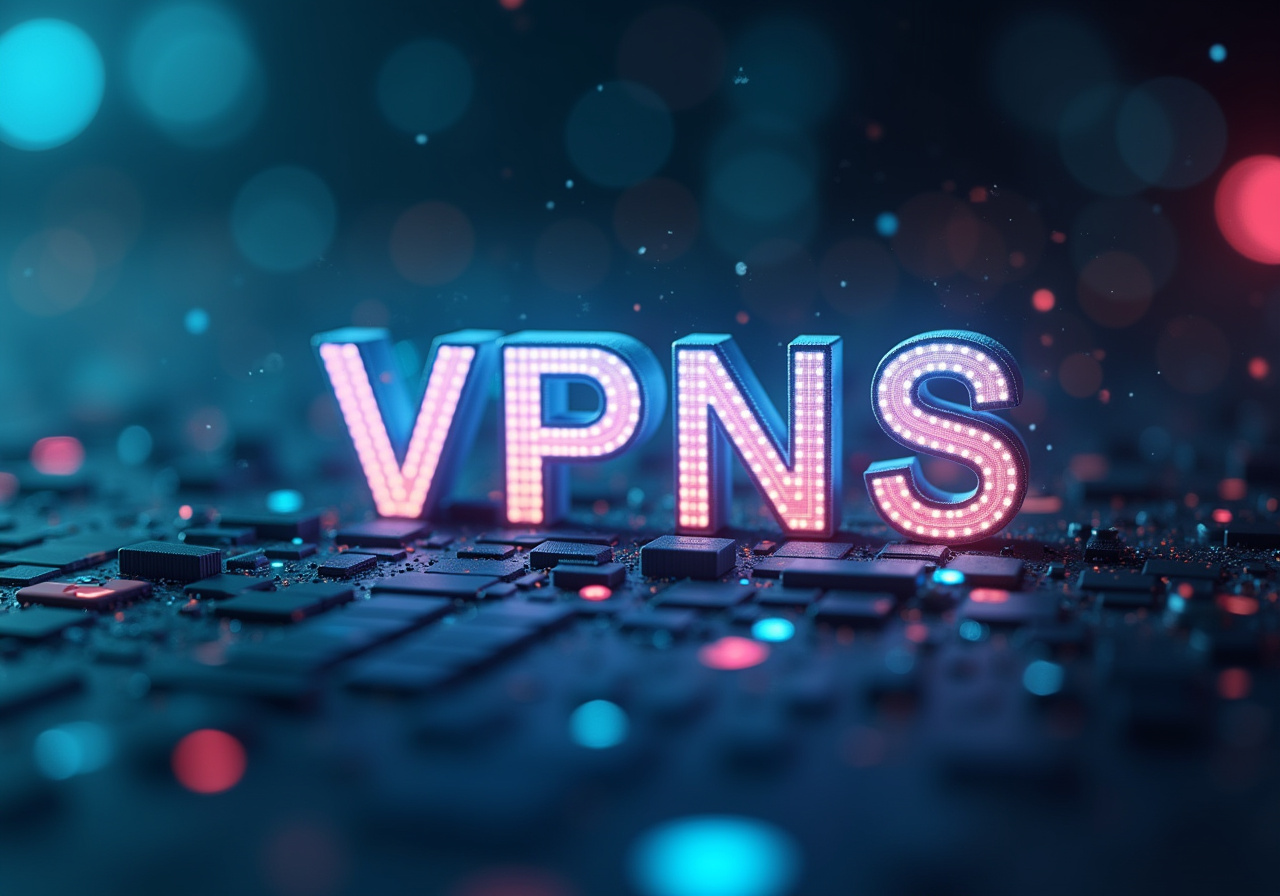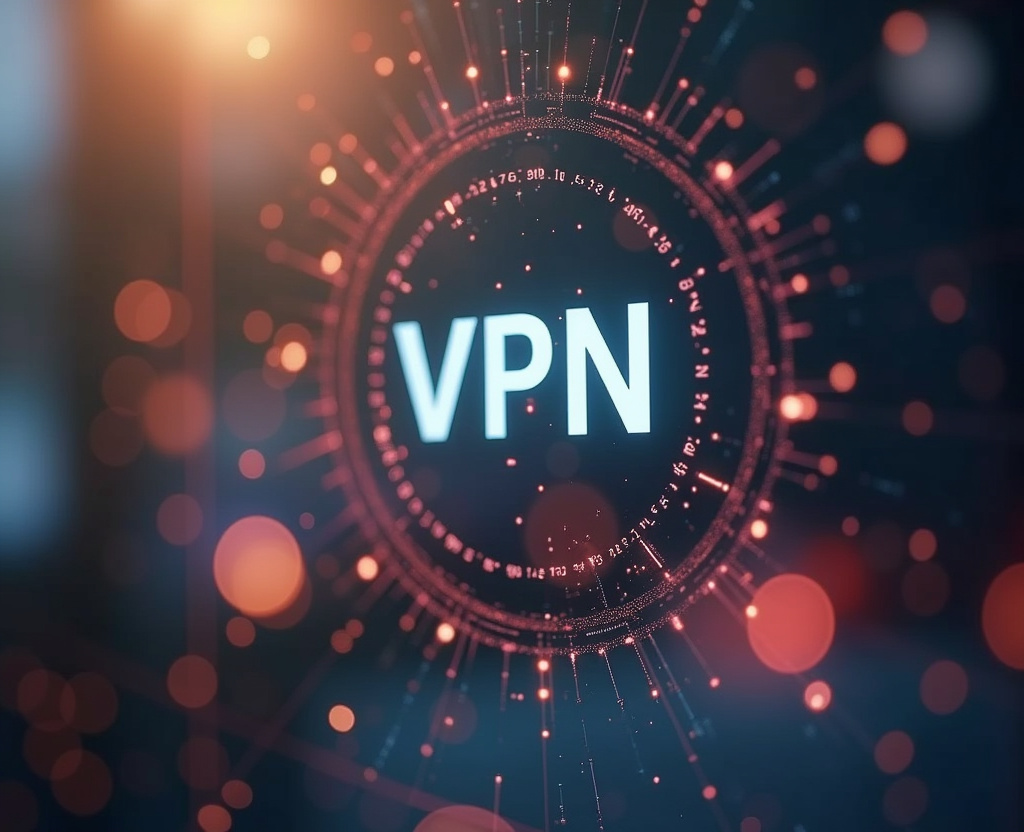VPNs for Podcasters: Ensuring Content Privacy

Table of Contents
In the vibrant and ever-expanding universe of podcasting, where creators transform their passions into compelling audio narratives, the significance of content security often lurks in the shadows, overshadowed by the demands of content creation and audience engagement. However, this digital frontier presents a landscape riddled with potential vulnerabilities, threatening the confidentiality, integrity, and overall health of podcast content. From the looming specter of unauthorized access and insidious data breaches to the blatant infringement of copyright and the stifling grip of censorship, podcasters face a growing gauntlet of challenges that demand proactive and robust security solutions.
In this context, a Virtual Private Network (VPN) emerges not as a mere tool, but as a crucial shield, a digital guardian safeguarding podcast content with unwavering vigilance. A VPN provides a secure tunnel for data transmission, effectively cloaking IP addresses and mitigating a myriad of online risks that plague the modern podcaster. This comprehensive exploration delves deep into the vital role of VPNs for podcasters, meticulously examining the diverse threats lurking in the realm of content privacy, elucidating the manifold benefits of employing a VPN, and providing key considerations for selecting the optimal VPN service, ensuring the protection of your invaluable audio creations.
Podcasters, in their quest to connect with audiences, increasingly rely on a suite of digital tools encompassing recording, editing, and distribution platforms. This reliance, while empowering, also introduces a cascade of potential vulnerabilities that can be exploited by malicious actors. Consider, for instance, the precarious position of raw audio files residing on cloud services, often lacking sufficient encryption.
The free and open communication channels with guests, while fostering collaboration, can also become conduits for interception. Public Wi-Fi networks, ubiquitous in cafes, conferences, and remote recording locations, present tempting targets for eavesdropping and data breaches. All these factors combine to create a threat landscape that podcasters can no longer afford to ignore.
Securing your content becomes not just a best practice, but a paramount necessity for maintaining creative control over your work, vehemently protecting your intellectual property rights, and fortifying the integrity of your brand against reputational damage. The consequences of neglecting security are far-reaching and potentially devastating. Imagine the nightmare scenario of pre-release episodes being leaked online, robbing you of the carefully planned launch and diluting the impact of your work.
Picture confidential guest information falling into the wrong hands, leading to potential legal liabilities and breaches of trust. Or worse, consider the crippling possibility of your entire podcast archive being held hostage by ruthless cybercriminals demanding exorbitant ransoms. Such incidents can inflict irreparable damage to your reputation, erode the trust of your audience, and trigger significant financial losses that can cripple your podcasting venture.
Therefore, podcasters must actively embrace a proactive and comprehensive approach to content security, recognizing that a podcast VPN is not a discretionary luxury but a fundamental necessity for protecting the foundation of your podcasting business and its long-term sustainability. The strategic deployment of VPNs extends beyond the mere protection of finalized podcast episodes from unauthorized leaks. It encompasses the vital task of securing the entire intricate workflow associated with the podcast creation process.
Securing your email communications with potential and recurring guests through the deployment of a VPN can effectively mitigate the risk of sophisticated phishing attacks specifically designed to obtain sensitive information or unwittingly introduce malicious malware into your systems. Implementing robust encryption for your chosen cloud storage solution, where you diligently maintain your raw audio files, effectively ensures that even in the unfortunate event of an account compromise, the critical data remains unreadable and utterly useless to any unauthorized individuals attempting to access it. Moreover, proactively protecting your online activities while conducting crucial research for upcoming episodes or while engaging in collaborative communications with fellow creators and contributors significantly prevents insidious eavesdropping and unauthorized data interception, thereby safeguarding your intellectual property and maintaining the confidentiality of your creative process.
By seamlessly integrating a VPN into every facet of your podcasting workflow, you are effectively constructing a formidable and impenetrable security perimeter around your entire operation, drastically reducing the overall risk of catastrophic data breaches, disruptive security incidents, and potentially devastating financial losses.
The most fundamental and compelling benefit of integrating a VPN into your podcasting workflow lies in its innate ability to forge a secure and meticulously encrypted connection between your device and the vast expanse of the internet. This formidable encryption process effectively scrambles your data into an unreadable cipher, rendering it incomprehensible to potential eavesdroppers lurking in the digital shadows. These malicious actors might include opportunistic hackers seeking to exploit vulnerabilities, overreaching government agencies intent on monitoring online activities, or even your own internet service provider (ISP), which may be tracking your data usage for various purposes.
By adeptly masking your unique IP address and strategically routing your entire internet traffic flow through a carefully selected remote server, a VPN achieves the remarkable feat of effectively concealing your true physical location and masking the intricate details of your online activity. This capability is rendered particularly crucial and invaluable when you find yourself relying on inherently insecure public Wi-Fi networks, which are notoriously susceptible to a range of cyber threats, including insidious man-in-the-middle attacks that can compromise your sensitive data. By rigorously encrypting all data meticulously transmitted between your device and the highly secure VPN server, you are essentially constructing a private and impermeable tunnel that diligently shields your confidential information from prying eyes and unauthorized access.
This significantly reduces the ever-present risk of debilitating data breaches, unauthorized access to sensitive accounts, and a plethora of other security threats that can disrupt your podcasting operations. Furthermore, the vast majority of reputable VPN providers augment their core encryption capabilities with a suite of supplementary security features designed to enhance your overall protection. One particularly useful feature is a "kill switch," which acts as an automatic failsafe, instantly disconnecting your internet connection in the event that the VPN connection unexpectedly drops or becomes unstable.
This crucial function prevents your real IP address from being unintentionally exposed, thereby safeguarding your anonymity and privacy. Additionally, some VPNs offer integrated malware and phishing protection, providing an extra layer of defense against malicious software and deceptive online scams, further bolstering your online security posture. Beyond its primary security benefits, VPNs also bestow a range of additional advantages that are particularly relevant and advantageous for podcasters.
Chief among these is the ability to effortlessly bypass geographic restrictions, granting you unrestricted access to content and services that may otherwise be unavailable within your current region or country. This capability proves invaluable when conducting in-depth research for your podcast, collaborating with guests residing in different parts of the world, or accessing regionally restricted resources that enhance your content. VPNs can also contribute to improving your internet speed by effectively preventing your ISP from engaging in bandwidth throttling based on your perceived online activities.
This proactive measure ensures that your connection remains consistently fast and reliable, facilitating seamless uploading of large audio files, conducting uninterrupted live interviews with remote guests, and engaging in other bandwidth-intensive activities crucial to your podcasting workflow. To illustrate the practical benefits, consider the scenario of a podcaster embarking on a journey to attend an international industry conference. Rather than relying on the potentially insecure and vulnerable hotel Wi-Fi network to conduct vital preperations she can proactively connect to a VPN server situated in her home country, enabling a secure and encrypted connection that defends her devices and data from local cyber security threats.
This allows her to access content on the company server. In this situation, the podcaster can confidently engage in her professional activities, secure in the knowledge that her digital security remains uncompromised, and her essential private information remains strictly confidential. Therefore a properly chosen VPN should be seen as a tool that can give confidence to perform your work from almost any location, by providing a secure and reliable connection that is not limited by the geographic location.
Another critical facet of bolstering content security for podcasters revolves around proactively preventing unauthorized access to your various online accounts and sensitive data repositories. While the implementation of robust passwords, the diligent utilization of two-factor authentication (2FA), and the consistent execution of regular and thorough security audits constitute essential foundational practices, a VPN serves as an invaluable supplemental layer of protection, further fortifying your defenses. By effectively masking your IP address and meticulously encrypting your internet traffic, a VPN significantly increases the difficulty for malicious hackers to successfully target your accounts and launch intrusive attacks.
Through the strategic routing of your internet connection through a secure VPN server, you are effectively concealing your true geographical location and masking your digital identity, making it substantially more challenging for cybercriminals to trace your online activities back to you. This critical measure can effectively prevent hackers from leveraging your IP address to gain unauthorized access to your accounts, launch targeted phishing campaigns designed to steal your credentials, or exploit other vulnerabilities to compromise your systems. Furthermore, a VPN can provide robust protection against potentially damaging DNS leaks, which can inadvertently expose your browsing history, online activities, and other sensitive information to your ISP or other third-party entities that may be monitoring your internet traffic.
A DNS leak occurs when your device unintentionally sends Domain Name System (DNS) queries—the essential process of translating a domain name into a corresponding IP address—to your ISP's default DNS servers instead of utilizing the VPN's secure and private DNS servers. This seemingly minor oversight can inadvertently reveal your true IP address and browsing activity, even when you believe you are securely connected to a VPN, thereby undermining the intended privacy benefits. An effective and reliable VPN service will incorporate built-in DNS leak protection mechanisms to ensure that all DNS queries are consistently and securely routed through its own infrastructure of secure servers, preventing any unintentional exposure of your sensitive data.
To further bolster your defenses against unauthorized access, you should adopt a meticulous and rigorous approach to cloud storage security, particularly if you rely on cloud-based platforms to manage your valuable audio files, comprehensive show notes, and other forms of sensitive information related to your podcasting operations. It is absolutely crucial to select a cloud storage provider that offers a comprehensive suite of robust security features, including but not limited to, advanced encryption protocols for data both at rest and in transit, mandatory two-factor authentication to prevent unauthorized account access, and granular access controls that allow you to precisely define who has permission to access what data. You should also establish a recurring schedule to regularly review and scrutinize your cloud storage settings to verify that the appropriate security measures remain enabled and that no unauthorized users or applications have been granted access to your sensitive resources.
Access controls should be regularly reviewed and updated as personnel changes occur in any team environment. It is a good measure to remove access from all shared cloud storage to employees that have left the company or no longer require access to the documents. This can stop a disgruntled employee of misinformed former worker to perform any unwanted access to the sensitive documentation of the company.
By being proactive with removing access from cloud storage you minimize the chances of internal attack. The internal attack vector should not be underestimated, since it's one of the most common cause of data breaches.
In addition to the more technical aspects of content security, podcasters must also be mindful of the legal and ethical implications of their work. Copyright infringement, defamation, and privacy violations are all potential pitfalls that can lead to legal challenges and reputational damage. A VPN can help to mitigate some of these risks by providing a layer of anonymity and protecting your online communications.
For example, if you are conducting research on a sensitive topic or interviewing a controversial guest, a VPN can help to shield your identity and prevent you from being targeted by online harassment or surveillance. Similarly, if you are distributing your podcast in countries with strict censorship laws, a VPN can allow listeners to bypass these restrictions and access your content. However, it is important to remember that a VPN is not a substitute for legal advice.
You should always consult with an attorney to ensure that your podcast complies with all applicable laws and regulations. Furthermore, ethical considerations should always guide your content creation and distribution practices. Avoid plagiarism, respect copyright laws, and be transparent about your sources.
Obtain consent before recording or publishing any personal information about your guests, and be mindful of their privacy rights. A VPN can help you to protect your anonymity, but it cannot excuse unethical or illegal behavior. A responsible podcaster should use a VPN as a tool for protecting their content and their audience, not as a shield for hiding behind unethical practices.
Consider the scenario of a podcaster creating a documentary series that explores sensitive political issues in a foreign country. By using a VPN, the podcaster can protect their communications with sources inside the country and prevent the government from tracking their online activity. The VPN can also allow listeners inside the country to access the podcast without fear of censorship or reprisal.
However, the podcaster must still be careful to verify their sources, avoid defamation, and respect the privacy of their subjects. The VPN is simply a tool that helps to protect the podcaster's anonymity and freedom of expression, but it does not replace the need for responsible journalism. The best method is to find a proper balance between security and ethical content creation.
Building high quality original content is paramount, do not sacrifice quality for the sake of security. Create content that is authentic and engaging, while understanding your security needs to protect the content you are working on to reduce the chances of stealing your work to be at minimum. Creating a proper workflow is important, and integrating a VPN into said design is one of the most effective ways to reduce internal and external threats.
Selecting the right VPN for your podcasting needs requires careful consideration of several key factors. Not all VPN services are created equal, and some may be better suited for certain tasks than others. Speed, security, reliability, and cost are all important considerations.
When evaluating VPN services, pay close attention to the encryption protocols they use. OpenVPN and IKEv2 are generally considered to be the most secure options. Also, look for VPNs that offer a kill switch, DNS leak protection, and a strict no-logs policy.
A no-logs policy means that the VPN provider does not track or store any of your online activity, ensuring your privacy is protected. Server location is another important factor to consider. Choose a VPN with servers in the regions where you typically access content or collaborate with guests.
The closer the server is to your location, the faster your connection speed will likely be. However, if you are trying to bypass geographic restrictions, you may need to connect to a server in a different region. Price is also a factor to consider, but don't let cost be the only determining factor.
Free VPNs often come with limitations, such as slow speeds, limited bandwidth, and intrusive advertising. They may also collect and sell your data to third parties, defeating the purpose of using a VPN in the first place. A paid VPN subscription is generally a better investment in the long run, as it provides better security, performance, and privacy.
Also, consider the user interface of the VPN app. Is it easy to use and navigate? Does it offer advanced features that you may need?
A user-friendly VPN app can make it easier to manage your connection and customize your settings. Reviews and testimonials must also be considered when picking a VPN. Finally, before subscribing to a VPN service, be sure to read the terms of service and privacy policy carefully.
Make sure you understand what data the provider collects, how they use it, and what measures they take to protect your privacy. By taking the time to research and compare different VPN services, you can find one that meets your specific needs and provides the best possible protection for your podcasting content. Look for transparency and reliable data protection for your selection.
Stepping beyond the general considerations for VPN selection, let's delve into some specific scenarios and features that hold particular relevance for podcasters. For instance, if your workflow involves frequent file transfers of large audio recordings, prioritize VPN services that boast consistently high upload and download speeds. Conduct thorough speed tests using online tools to assess the performance of various VPN servers in different geographical locations.
Consider running these tests during peak usage hours to gauge the VPN's ability to maintain its performance under heavy load conditions. In the realm of remote interviews, seamless and uninterrupted connectivity is paramount. Opt for a VPN that offers server stability and minimal latency, which can significantly reduce delays and ensure smooth real-time communication with your guests.
Explore VPN services with specialized features like split tunneling, which allows specific applications (such as your audio recording software) to bypass the VPN tunnel and connect directly to the internet. This can improve performance for certain tasks while still protecting your overall online activity. Another crucial element is multi-device compatibility.
As a podcaster, you likely utilize a range of devices, including laptops, tablets, and smartphones, for various tasks. Choose a VPN provider that offers native apps for all your devices and that allows simultaneous connections on multiple devices under a single subscription. This streamlines your security efforts across your entire digital ecosystem.
Customer support can be a lifesaver when encountering technical difficulties or requiring assistance with VPN configuration. Prioritize VPN providers that offer responsive and knowledgeable customer support through various channels, such as live chat, email, and phone. Test the responsiveness of their customer support team before committing to a subscription by submitting sample questions and evaluating the speed and quality of their responses.
For advanced users, explore VPN services that offer advanced configuration options, such as custom DNS settings, port forwarding, and the ability to use third-party VPN clients. These options can provide greater control over your VPN connection and allow you to tailor it to your specific needs. As a final note, remember that no VPN service can guarantee 100% security.
VPNs are tools that enhance your online privacy and security, but they are not foolproof. It is crucial to complement your VPN usage with other security best practices, such as using strong passwords, enabling two-factor authentication, and being vigilant about phishing scams. To recap, protecting podcast content requires a multi-layered strategy, and VPN use is a critical addition to that policy.
Evaluate VPN services meticulously, matching features to the needs and workflow. Legal and ethical considerations are always important, and VPN use should support those values. By making a wise decision and following best practices, podcasters can properly protect their content and maintain security.
Take the necessary steps to safeguard both creativity and protect content through these steps.
Stay Updated
Get the latest VPN news, tips, and exclusive deals to your inbox.




